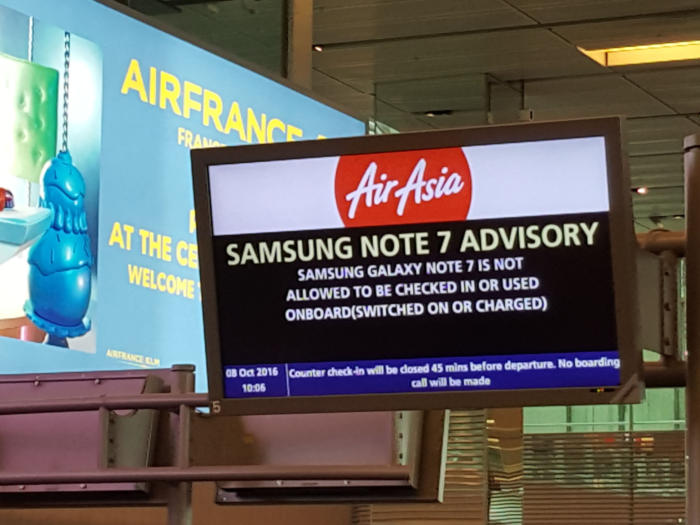Note7 battery overheating and recall was “beyond bad,” Lenovo executive says
That was the infamous smartphone that Samsung recalled globally — to the tune of 3 million devices — after lithium ion batteries inside some units short-circuited, overheated and even caught fire. Samsung instituted an 8-step battery safety check process in January in reaction to the recall.
Read: MWC 2017: Smart Cities at the Center of Mobile World Congress
David Lowes, senior vice president for marketing at Samsung Electronics Europe said:
“The past six months has undoubtedly been one of the most challenging periods in our history. We did not meet the quality standards we set for ourselves and that consumers expected.”
Lowes didn’t mention the Note7 by name but added, “We’re committed to radical and quality innovation. Thank you to our current customers who have stayed loyal to Samsung.”
He mentioned the new 8-point battery safety check and noted that a special battery advisory group has been created with staff that includes academic expertise. “They will give a clear perspective on battery safety for our benefit and the industry as a whole,” he said.
Read: MWC 2017: The Comeback Kid: Nokia the Old Kid on the Block is Back!
Samsung executives went on to describe innovations with 5G wireless technology as well as two new tablet products — a Galaxy Tab S3 running Android 7 and a Galaxy Book 2-in-1 device running Windows 10. Both will be released in April, but Samsung didn’t specify pricing.
McCarty said in an interview that Samsung enterprise customers have responded especially well to Samsung’s safety initiatives after the Note7 recall.
“The reaction has been extremely positive by enterprise customers,” he said. “Many using the Note7 said they hated to give that device up.”
Samsung announced that its next big “unboxed” announcement will come on March 29, which is widely expected to be its launch of the Galaxy S8 smartphone. The device might have been announced at MWC if not for Samsung’s decision to announce its safety reviews first.
The delay in the next unboxed announcement came about “because we wanted to give the market time to show how seriously we are taking all the issues to make sure devices are safe,” McCarty added.
The ramifications of the Note7 recall have surely awakened other smartphone makers globally, McCarty and analysts said.
At Lenovo, which announced the affordable Moto G5 and G5 Plus smartphones on Sunday, the lessons of the Note7 fiasco have been felt.
(Only the G5 Plus with a 5.2-in. display will be sold in the U.S. — on Motorola’s website — for $229 for the 16 GB version, starting soon. Customers can purchase it unlocked for use on any U.S. carrier.)
“Everybody learned from the Note7,” said Dan Dery, vice president of global products for Lenovo, in an interview. ” It was beyond bad . . . but Samsung survived and might have been the only company that could have survived that.”
He added, “nobody is safe” from such technical problems.
“We have long relationships with U.S. carriers who demand reliability. You need to be scared and skilled to go through reviews by companies like AT&T and Verizon. I’m not saying this can’t happen to us, but we are focused on these things, not only battery safety.”








